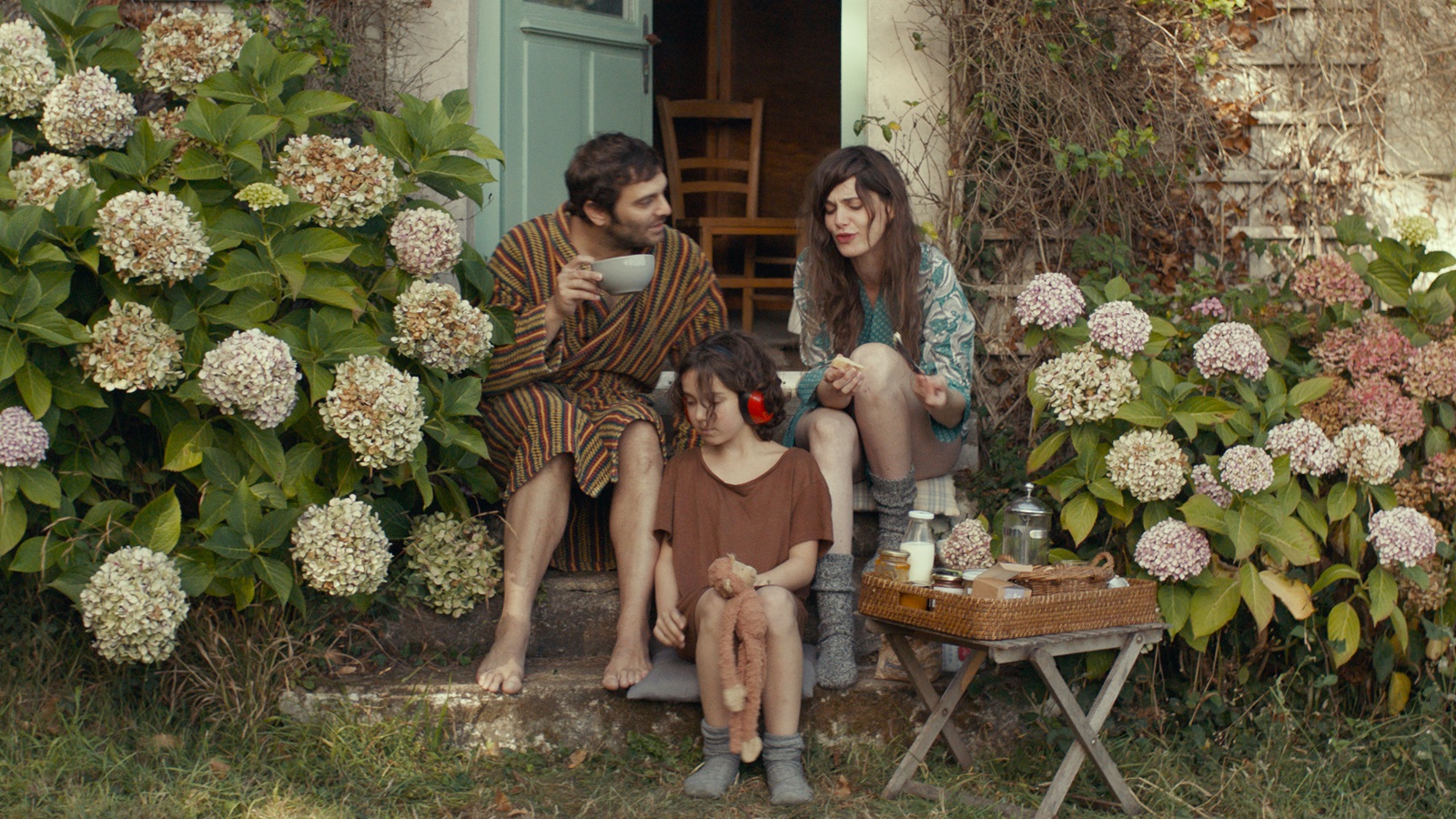Felicità opens on a greasy spoon diner, where bohemian parents Chloé (Camille Rutherford) and Tim (Pio Marmaï) are enjoying a late breakfast with their 11-year-old daughter Tommy (Rita Merle). So far, so familiar… but then Tim breaks an uncomfortable and impassioned truth to his daughter, before the whole scene takes a hugely unexpected turn. It’s a showstopper of an opening and one that sets the tone for the whole film, which is as artfully shot as it is playfully written.
For it soon transpires that Chloé and Tim are the most unorthodox of parents, the latter having allowed his impetuosity and the desperation of his circumstances to land him behind bars for the first four years of Tommy’s life. Now released and attempting to get back somewhere near (but not too close to) the straight and narrow, the family are enjoying the last vestiges of the summer holidays before Tommy must return to school the following day – an event she is determined not to be late for, like every other year. However, an unforeseen chain of events causes Chloé to go missing and Tim to react with his customary hot-headedness, landing the trio in scalding water once more.
The tone here is never certain, flitting from whimsy-go-lucky to richly dark humour to just plain darkness; at times, director and screenwriter Bruno Merle leads us towards the murkier corners of the human experience, especially when Tim’s more animalistic impulses get the better of him. However, he always manages to successfully wrench us back from the brink with a subversive joke or stylistic quirk. The tonal shift might unsettle some viewers or simply keep others on their toes, but regardless of how they react to the thematic content, they’ll surely be impressed by the technical aspects of Felicità.
Quite aside from the stunning cinematography, which is framed and coloured to perfection, there are also some neat directorial flourishes, such as the recurrence of Tommy’s noise-cancelling earmuffs or the rather bizarre appearance of French rapper Orelsan as an imaginary cosmonaut. Traditionalists might find these touches a little overblown and twee, but they undeniably bring a certain charm to the picture. What’s more, the scatter-brained story is anchored by excellent performances from the central trio, with the director’s own daughter putting in perhaps the most impressive turn as the idiosyncratic Tommy. Marmaï is also hugely charismatic and compelling as her loose canon father, too, and the pull that he exerts makes up for any shortcomings in the plot.
All in all, Felicità is an offbeat French comedy which channels the mischievous and off-the-wall dynamism of movies like Little Miss Sunshine and Big Fish, only sporadically venturing into darker territory. Indeed, the down-and-out, self-destructive eccentric Tim recalls a watered-down version of similar characters from a lengthy canon of French cinema (think a rounder-edged Michel from Breathless, for example), but Merle successfully manages to channel that livewire energy into a new (albeit shape-shifting) genre, resulting in a real delight of a film that keeps the viewer guessing right until the final curtain.
Screening as part of the French Film Festival UK 2020
